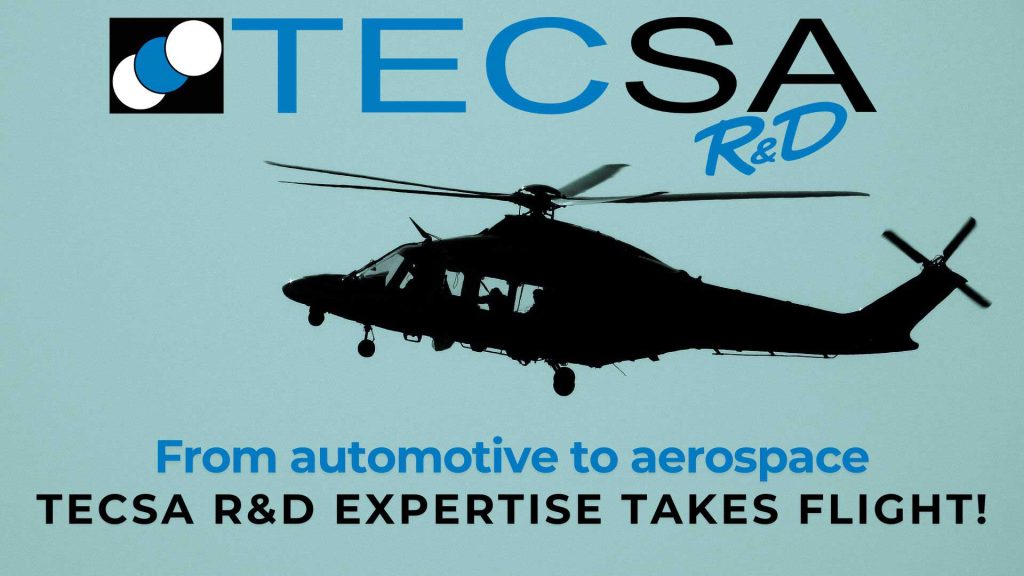TecSA R&D consolidates its position as a leader in testing and applied research by successfully completing a complex series of experimental tests on helicopter rotors for a prestigious European client operating in the Avio sector.
This project represents a significant confirmation of the high level of technical expertise, experimental accuracy, and advanced analytical capability that have always distinguished our laboratory.
Drawing on deep experience gained in the highly competitive automotive world—where we have been operating for decades at the highest levels in the testing and validation of braking system components—TecSA R&D is now able to effectively transfer its know-how, advanced methodologies, and innovative measuring tools to other high-technology sectors, such as aeronautics and aerospace.
The cross-disciplinary nature of our expertise, combined with an innovation-oriented approach, allows us to tackle complex challenges with customized, cutting-edge solutions.
The activity carried out on helicopter rotors required a multidisciplinary approach and an extensive integration of skills.
We combined advanced structural analyses, targeted functional tests, and high-precision dynamic measurements to achieve a comprehensive understanding of the rotor system’s behavior under different operating conditions.
This project further confirmed our ability to adapt the most advanced testing techniques to each specific application context, ensuring accurate and reliable results.
Specifically, during our research and development activities, we conducted a series of in-depth tests on an innovative rotor braking system designed to decelerate and stop the circular motion of helicopter blades within a predefined and controlled time interval.
The primary goal of this testing phase was to assess the effectiveness of the braking system in achieving the desired stop precisely and reliably, analyzing critical parameters such as response times, deceleration curves, vibrations, and rotor stability during braking.
Various configurations and control strategies were analyzed to optimize system performance and minimize stress on the blades.
In parallel with the braking tests, we carried out a full series of fatigue tests aimed at assessing the robustness and durability of each braking system component.
These tests, performed under simulated stress and repeated load conditions—often pushed to the limit—were designed to identify potential structural weaknesses, evaluate wear resistance, and validate the system’s ability to withstand the demanding operating conditions typical of the aerospace industry, thus ensuring maximum safety and reliability over time.
The fatigue tests will later be complemented by non-destructive inspections carried out by the client to detect the early onset of cracks or other defects.
Through this project, TecSA R&D continues to expand its scope and strengthen its role as a strategic partner for companies operating in high-technology sectors, offering the same reliability, expertise, and scientific rigor that make it a reference point in testing, validation, and applied research.
We are ready to face new challenges and contribute to innovation in the aerospace industry.

